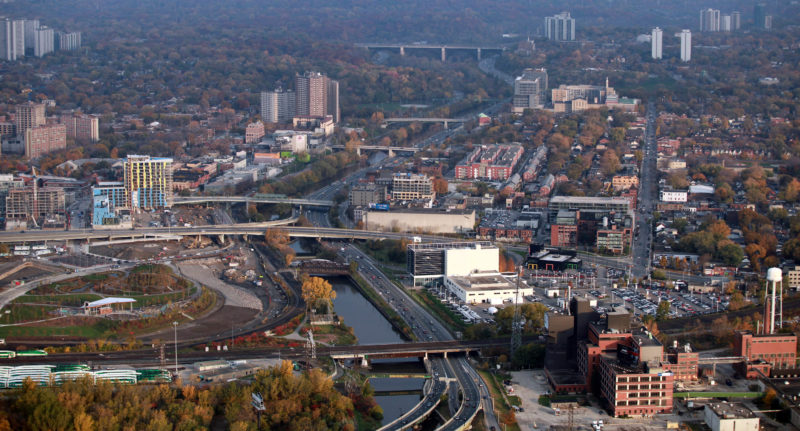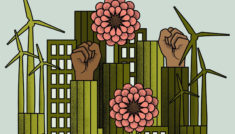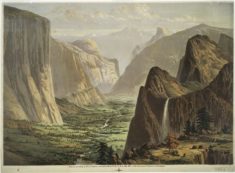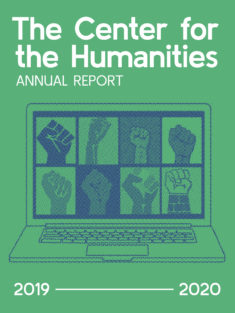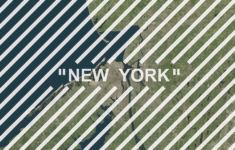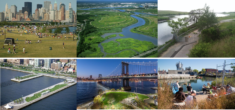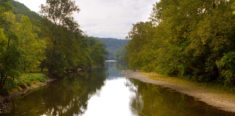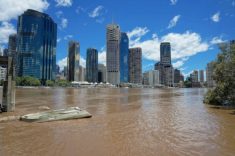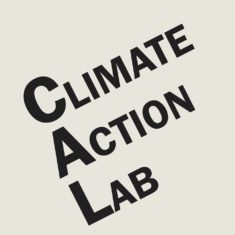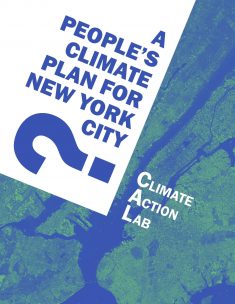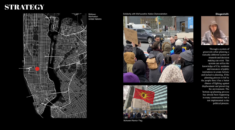About the event
Moving beyond traditional forms of public art and monument-making, artists who lead conceptual practices that work on, through, and in questions of policy, social practice, and performance are increasingly being given a seat at the table to weigh in on policy decisions.
Join us for a panel discussion led by New York-based artist collective Mare Liberum,
who will convene artists, writers, thinkers and policymakers to reflect
on recent art and policy collaborations, as part of their new public
art project which will unfold in Toronto in 2021, presented by Waterfront Toronto, Evergreen and The Center for the Humanities at The Graduate Center, CUNY.
Free and open to the public, but please REGISTER here for access to the livestream. The evening will take the form of a series of short presentations followed by a discussion and Q&A.
A follow-up event scheduled this fall will convene a working group
aiming to produce an outline for a white paper on the role of artists as
policy-shapers. Artists, policymakers, Don River enthusiasts,
naturalists, and the interested public are invited to attend and lend
their opinion to this community-drafted document.
Speakers:
Brian McBay, Executive Director of 221A, Vancouver
Carolyn King, Founder of the Moccasin Project and Former Elected Chief of the Mississaugas of the New Credit First Nation
Diya Vij, Curator and Cultural Producer, New York City
Dylan Gauthier, Kendra Sullivan and Sunita Prasad, Members of Artist Collective Mare Liberum
Jane Weninger, Senior Planner, City of Toronto
Pamila Matharu, Toronto-based Artist, Cultural Producer and Educator
Moderated by Kari Cwynar, Senior Curatorial Advisor, Evergreen
About the Speakers:
Pamila Matharu is an immigrant-settler of north Indian Panjabi-Sikh descent,
born in Birmingham, England, based in Tkarón:to (Toronto). As an artist,
she explores a range of transdisciplinary feminist issues, blurring the
lines between objects, activism, community organizing, and public
pedagogies. Her practices include object making
(installation, collage, film/video/photography), curating/organizing,
artist-led teaching, arts administration/advocacy, and social practice.
Carolyn King is the former elected Chief of the Mississaugas of the New Credit First Nation and completed one two-year term in political office from December 1997 to December 1999. She was the first woman ever elected as Chief of her First Nation. As the sole proprietor of JDI Business Services, her goal is to be a facilitator/resource person for Aboriginal/First Nation Peoples in Canada. She is engaged by government, colleges and universities, businesses and community organizations to do cross-cultural training sessions/presentations to help people develop a better understanding of Aboriginal/First Nations Peoples in Canada. As a First Nation employee for nearly 20 years with the Consultation and Outreach Office of the Mississaugas of the New Credit First Nation, King has hands-on experience and an in-depth knowledge of her First Nation community. In 2012 she was awarded the Queen Elizabeth II Diamond Jubilee Medal in recognition of my support for First Nation history and the advancement of Aboriginal Peoples. In 2011, Carolyn King launched the Moccasin Identifier Project in partnership with Mississaugas of the Credit First Nation and the Ontario Greenbelt, to promote public awareness of significant cultural historic sites and the ancestral presence of First Nations, Metis and Indigenous Communities. For more information on the project, please visit https://moccasinidentifier.com/.
Brian McBay (pronouns he/him/his) is Executive Director of 221A, a non-profit organization that works with Artists and Designers to research and develop social, cultural and ecological infrastructure based on the unceded territories of the Musqueam, Squamish and Tsleil-Waututh first nations in the city known as Vancouver. Under his leadership, 221A operates a growing network of over 54,000ft2 across five properties in Vancouver that provide space for cultural research, public art and affordable artist studios. He is known for applying his unique skill set and training as an industrial designer to non-profit property design, construction and regulation. As a student Co-founder of 221A during the height of the 2007-08 global economic crisis, he is part of a new generation of leaders in the cultural sector aiming to reverse deepening inequality, xenophobia and colonialism in Canada. In addition to his role at 221A, he was named a 2018 Fellow at the Salzburg Global Forum, was the President of the Pacific Association of Artist Run Centres from 2018–2020, and is currently a member of the City of Vancouver's Arts and Culture Advisory Committee, a member of the newly founded Chinese-Canadian Museum Board of Directors, and a member of the National Gallery of Canada Board of Trustees.
Diya Vij is an independent curator and cultural producer in New York City who critically investigates the evolving role of public art in politics and civic life. Over the past decade, she has held programming, curatorial, and communications positions at the High Line, the New York City Department of Cultural Affairs (DCLA), and the Queens Museum. As the Associate Curator of Public Programs at the High Line, Vij organized dozens of live events and performances with artists, activists, practitioners, and healers. At DCLA, Vij launched and co-directed the Public Artists in Residence (PAIR) program, a municipal residency program that embeds artists into city agencies to address New York City’s most pressing issues. Participating artists have included Tania Bruguera, Tatyana Fazlalizadeh, Onyedika Chuke, and Ebony Noelle Golden. Additionally, she was a project lead for the Agency’s citywide Diversity, Equity, and Inclusion initiative, and played an active role in public monument efforts, and CreateNYC — New York City’s first cultural plan. A former curatorial fellow and communications manager at the Queens Museum, Vij received her MA in Art History from Hunter College in 2015 and her BA from Bard College in 2008.
Jane Weninger is a Senior Planner with the City of Toronto where she is responsible for green space system planning in Canada's largest city. Working at the intersection of urban planning and the natural environment, Jane represents the City of Toronto in the establishment of the Rouge National Urban Park and was instrumental in the development of numerous city-wide strategies and policies, including the Toronto Biodiversity Strategy and the Toronto Ravine Strategy. After completing a work program to identify and recognize environmentally significant areas across the city, Jane collaborated with visual artist Robert Burley on the Enduring Wilderness project which includes a book and photography exhibition about Toronto's natural parklands commissioned by the City of Toronto. Jane believes that nature and the city can co-exist and that natural landscapes are fundamental to the quality of urban life. Jane sits on the Board of Directors for the John B. Aird Gallery, a not for pubic profit art gallery in Toronto.
Mare Liberum (Speakers: Dylan Gauthier, Kendra Sullivan and Sunita Prasad) is
a collective of visual artists, designers, and writers who formed
around a shared engagement with the world’s waterways in 2007. As part
of a mobile, interdisciplinary, and pedagogical practice, the collective
has designed and built boats, published broadsides, essays, and books,
invented water-related art and educational forums, and collaborated with
diverse institutions in order to produce public talks, collaborative
exhibitions, participatory works, and voyages. Mare Liberum has
presented work at the Centre Pompidou - Musée national d'art moderne,
Paris, the Carpenter Center for the Visual Arts at Harvard University,
the Parrish Art Museum, MASS MoCA, the Neuberger Museum, and EFA Project
Space, among others. The collective is Jean Barberis, Dylan Gauthier,
Ben Cohen, Stephan von Muehlen, Arthur Poisson, Sunita Prasad, and
Kendra Sullivan.
About the Organizations:

Evergreen, a not-for-profit organization, has provoked bold action in transforming public landscapes into thriving community spaces. We believe that connecting people, natural and built worlds create flourishing cities for the future. Evergreen’s Art Program at the Evergreen Brick Works site and through the Don River Valley Park is a series of temporary, site-specific public art projects.
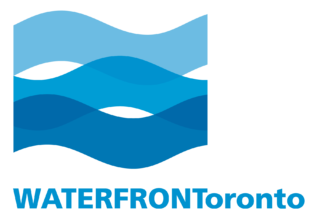
Waterfront Toronto is the public advocate and
steward of waterfront revitalization. Created by the Governments of
Canada and Ontario and the City of Toronto, Waterfront Toronto is
mandated to deliver a revitalized waterfront.
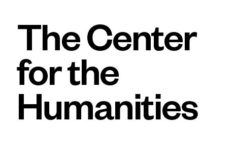
The Center for the Humanities at the CUNY Graduate Center encourages
collaborative, creative, and community-engaged work in the humanities
at CUNY and across the City of New York through public programming,
projects, seminars, conferences, publications, and exhibitions.
